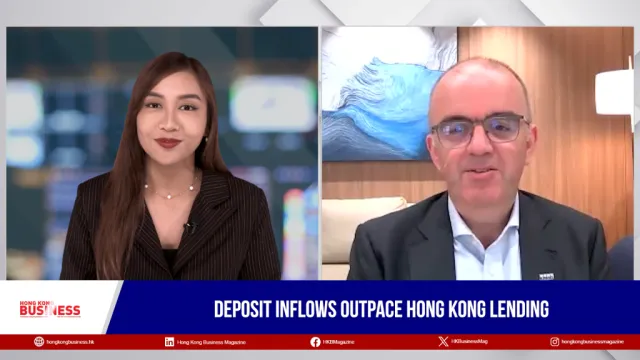
Government shields Hong Kong’s local MNEs from EU’s tax defensive measures
Hong Kong introduces foreign source income exemption regime (FSIE) to benefit local MNEs if certain requirements are met.
Before 2023, multinational enterprises (MNEs) in Hong Kong did not need to prove their economic presence in the city to receive tax exemption for their offshore passive income. This setup has landed Hong Kong on the European Union’s (EU) “watchlist” of markets with risks of double non-taxation.
To remove the city from the watchlist, and prevent it from landing on the “blacklist,” the government introduced changes to its foreign source income exemption regime (FSIE).
“If Hong Kong fails to comply with the EU’s request, it would be listed on the blacklist and Hong Kong-based enterprises would be subject to tax-related defensive measures imposed by the EU member states. These measures include denial of deduction of costs, higher withholding tax rate, reinforced monitoring of certain transactions, and higher audit risks for taxpayers,” Wei Kang, partner at Stephenson Harwood’s Greater China Private Wealth Team, told Hong Kong Business.
Apart from being able to shield MNEs in the city from the EU’s tax defensive measures, the refinement of Hong Kong’s FSIE regime will also uphold the city’s competitiveness.
“The FSIE regime is only applicable to certain types of specified income received by MNE entities in Hong Kong, with certain exclusions available to certain types of entities. Furthermore, the specified income remains non-taxable provided that the relevant exception requirement is met, such as the economic substance (ES) requirement,” PwC Hong Kong tax partner, Agnes Wong, told Hong Kong Business.
“In other words, in-scope taxpayers that already have business substance in Hong Kong should have no difficulties in meeting the ES requirement under the FSIE regime and they will not be impacted by the implementation of the bill,” she added.
The exemptions
Under the refined FSIE regime, interest, dividend, disposal gain from the sale of equity interests in an entity and intellectual property income arising in or derived from a territory outside Hong Kong and received in the city are subject to tax.
Regulated financial entities which derive interest, dividend or disposal gain from their business as a regulated financial entity, however, are exempt from the rule.
The foreign-sourced income received from Hong Kong by MNEs, however, will not be deemed chargeable to tax if they meet exception requirements for the particular type of income, Kang explained.
For interests to be exempt from tax, MNEs must meet the ES requirement.
“The latest international tax standards require a taxpayer benefiting from a preferential tax treatment in a jurisdiction to have a substantial economic presence in the jurisdiction and to establish an explicit link between the relevant income and real activities in the jurisdiction,” Wong said.
“Such requirements generally entail a taxpayer having an adequate number of employees and incurring an adequate amount of expenditure to undertake the relevant core income generating activities,” she added.
The ES requirement, or participation requirement, can also exempt dividends and equity disposal gains from tax. Meanwhile, MNEs must meet the nexus requirement to exempt their IP income from tax.
Impact on MNEs
The new FSIE regime will likely only have minimal impacts on MNEs with business substance in Hong Kong, said Wong.
Those who do not meet the ES requirement or the other conditions needed to be exempt can still look at other avenues to achieve tax neutrality like the enhanced tax credit mechanism.
“Under the mechanism, any foreign tax paid by a Hong Kong resident person on the specified foreign-sourced income that is chargeable to profits tax under the FSIE regime is eligible for a bilateral or unilateral tax credit against the profits tax payable on the same income, subject to the amount of the profits tax payable in respect of the income in Hong Kong,” Wong said.
This means the mechanism allows Hong Kong residents to receive a tax credit for any foreign tax they pay on specified income, which is subject to profits tax under the FSIE regime. This tax credit applies regardless of whether Hong Kong has a comprehensive double taxation arrangement (CDTA) with the foreign jurisdiction or not, according to Wong.
“MNE entities that wish to have upfront tax certainty may apply to the Commissioner of Inland Revenue for advance rulings on their compliance with the ES requirement. Where an advance ruling has been obtained, the taxpayer will be subject to streamlined reporting requirements by only disclosing the existence of the ruling and confirming its compliance with the conditions specified therein,” Wong said.
“Provided that there are no material changes to the MNE’s operations, the advance ruling granted may cover a maximum of five years,” she added.
The FSIE regime is still subject to refinements by the end of this year; however, Kang believes that the government will keep the city’s tax competitiveness whilst minimising the burden on local enterprises in introducing the FSIE reforms.
“In the short term, MNEs should keep themselves updated on the development of Hong Kong’s reforming FSIE regime. MNEs should also conduct a preliminary self-assessment of their corporate holding structure and business operations in Hong Kong to determine whether they would fall under the FSIE regime. MNEs may engage professional advisors to assess how their business would be affected,” Kang said.
Wong expressed a similar sentiment, saying that the government has adopted a pragmatic approach in formulating the design of the refined FSIE regime to minimise its impacts on MNE entities operating in Hong Kong.
The government has also provided MNEs with upfront tax certainty with its enhancement scheme, a two-month consultation on the eligibility criteria for the tax treatment of onshore sourced equity disposal gains.
“Coupled with the forthcoming tax certainty and incentive measures, Hong Kong will certainly remain attractive to MNEs,” she said.

















 Advertise
Advertise










